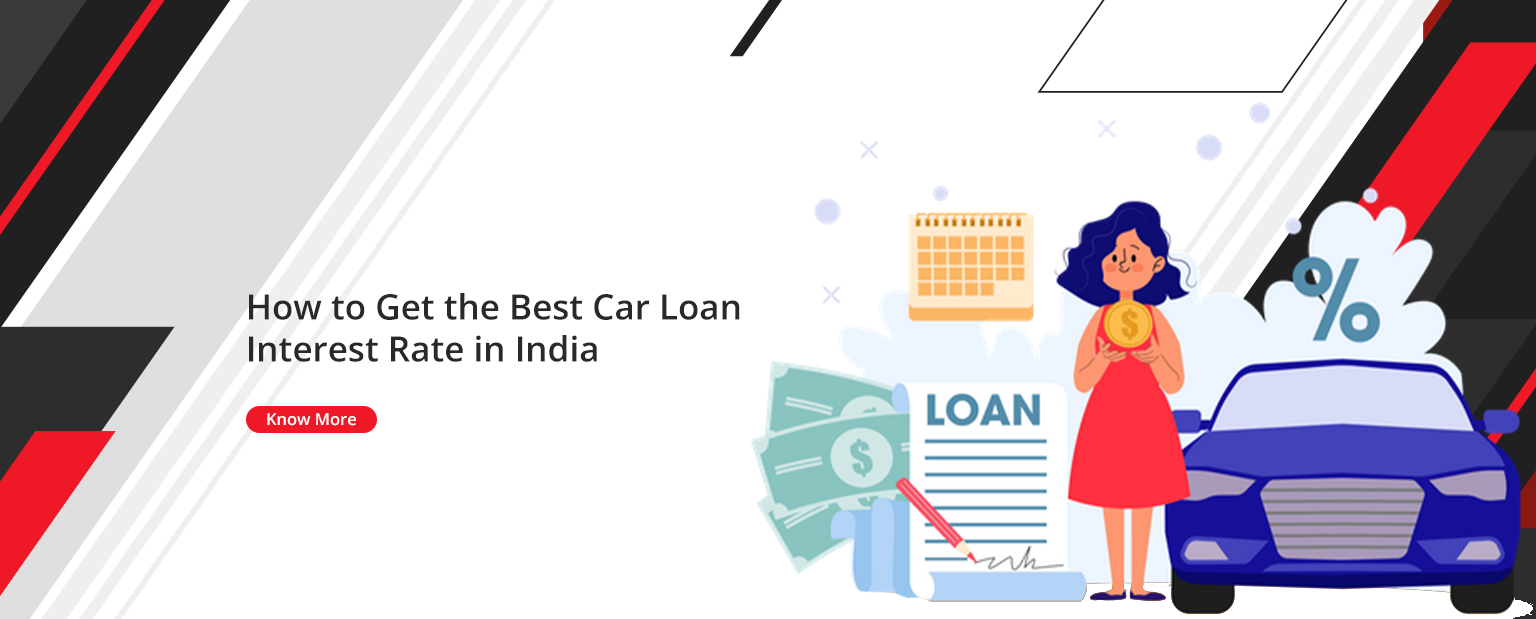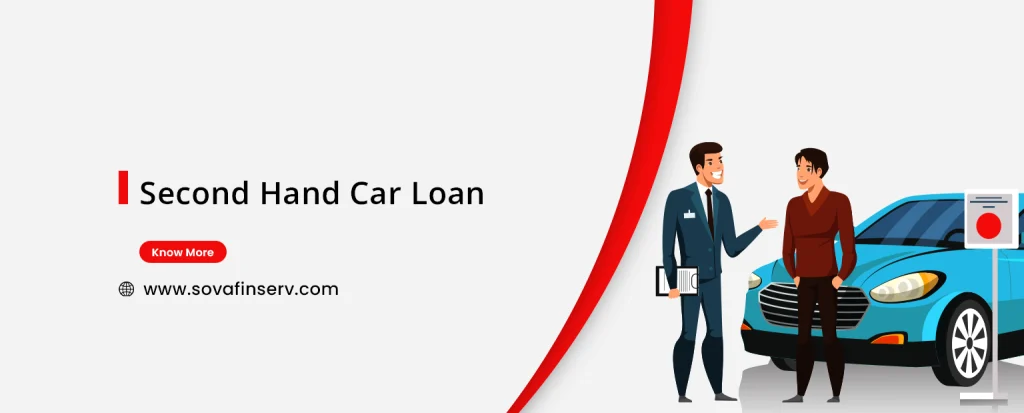When we own a car, our dream comes true. Everyone desires to own a car, whether it is a luxury car, a sedan, or a sports car. However, most people normally cannot afford to purchase a brand-new car. As a result, car loans have made the task far more affordable. Today, nearly all reputable Indian banks and NBFCs offer car loans with affordable interest rates. Even the approval process for car loans is no longer complicated.
Many financial service provider such as Sova FinServ offer a wide range of car loan options with the lowest interest rates. So, if you have any immediate plans to purchase a car and are looking for the best car loans in India, consider these factors before applying for the loan discussed in this blog.
Car Loan Interest Rates in India
In India, there are many loan providers that provide car loans. In India, interest rates on car loans begin as low as 6.65% per annum. You may be eligible for a car loan that covers up to 100% of the vehicle’s on-road price, depending on your credit score.
With this in mind, we have provided a list of car loan interest rates in India with lower numbers so you may acquire the car of your dreams and enjoy a top-notch driving experience. By providing you with a comprehensive understanding of these rates and all other relevant information, this list will introduce you to the vehicle loan interest rates offered by all institutions.
However, the following interests can vary with time as per banks and NBFCs. The proposed interest rates might be fixed or variable, and they can be assessed using the flat or reducing balance technique.
| Bank | Interest rate (%) | Processing fee (INR) |
|---|---|---|
| Axis Bank | 7.45-14.5 | 3500-5500 |
| Bank of Baroda | 7 onwards | 1500 |
| Bank of India | 6.85 onwards | 1000-5000 |
| Canara Bank | 7.30 onwards | 1000-5000 |
| ICICI | 7.90 onwards | 5500-8500 |
| Federal Bank | 10.75% onwards | Rs.1,500 to Rs.2,500 |
| State Bank of India | 8.20% onwards | – |
| Federal Bank | 7.65 onwards | – |
| Bank of Maharashtra | 6.40 onwards | – |
| Sova Finserv | – | – |
Factors Affecting Car Loan Interest Rates in India
1. Make sure you’re getting a loan for the correct vehicle:
It is best to approach your bank or financial institution for advice if you are unsure of
which loan would be appropriate for the model of the car you have chosen so they can
guide you in making the best decision possible. Sova FinServ offers their customers
24*7 free consultancy support to guide them in choosing the best for them.
2. Interest rates and additional fees:
When you are preparing to take loans from a financial institution for a car, it is important
to understand the loan sanction process, the appropriate interest rate, and the
knowledge of any additional charges. You should be aware of these details before
agreeing to the terms of the loan because these things can make or break your decision
to take out this loan with them.
3. Credit Score:
Your credit score is a significant factor that might affect the interest rate on your car loan.
A good credit score reveals that there is no risk in lending your money because your
history demonstrates that you have been paying your payments on time, according to
the score. It’s advised to keep a decent credit score to get a car loan with a reduced
interest rate. However, some financial institutions like Sova FinServ offer car loans even
with lower CIBIL scores as compared to banks.
4. Repayment Tenure:
Your interest rate will be significantly impacted by the tenure of your car loan. People
who choose a longer loan term will have lower EMIs overall, but they will be required to
pay a higher interest rate throughout the duration of the loan. On the other hand, shorter-
term tenure loans have higher EMIs but lower interest rates.
5. Down Payment:
Car dealers today have partnerships with several banks and lenders, bringing up the
possibility of 100% financing. Even while it could sound quite appealing, once you start
evaluating your options, you’ll realize that the bigger the loan, the higher the EMI. Make
sure you have the majority of the cash available as a down payment, which will
ultimately result in a lower loan amount and lower EMI.
6. Terms and Conditions:
There is one thing you should keep in mind when looking for a car loan. For example, if
you want to get a loan from your bank or another financial institution, make sure to read
the terms and conditions. This can be done online or by contacting them. You can
understand the perspective of your lender when you read their terms and conditions.
These can also stop you from borrowing money from a lender who is not the best fit for
your needs.
7. Stay connected with your bank:
Lenders only offer loans once they have confidence in your ability to repay the loan.
Communication is crucial in establishing confidence between the lender and the debtor.
It is best to talk with your lender and be open and honest with them about your problems
if you have any difficulties making loan repayments. Most of the time, lenders choose not
to pursue legal action because it can be quite costly to get their money back. As a result,
they assist you by increasing the duration you have to pay your EMI or by decreasing
the EMI amount by extending the loan tenure. Always keep them updated about your
problem so that they can work with you to find a viable solution.
It is important to get the correct car loan because your ability to repay the loan will be impacted by this choice. If you’re having trouble deciding where to apply for a car loan, Sova FinServ is the place to go. Sova FinServ offers car loans with 100% financing at low-interest rates. If your credit score is not good, they will still issue you a loan. Contact them right away to finance the car of your dreams!
FAQ
Can I negotiate a lower interest rate for my car loan with the lender?
You can negotiate for a lower interest rate on car loans if you have a high income, a strong credit score, and a positive relationship with the lender. However, whether to grant the request or not will solely depend on the lender.
Will car loan interest rates be fixed or variable?
On car loans, lenders provide both fixed and floating interest rates. Having a fixed interest rate means that it will remain the same for the duration of the loan, whereas a floating interest rate means that it will change depending on several factors. Before applying for a car loan, ask the lenders what kinds of interest rates they provide and choose the one that best meets your needs.
Will a higher down payment result in a lower interest rate?
You will only need to borrow a smaller amount for a car if you make a larger down payment. Because you will be repaying the loan sooner, you may be able to secure a cheaper interest rate in such instances.
Does a car loan come under 80c?
Car loans obtained by self-employed individuals for commercial vehicles are tax deductible under Income Tax Act Section 80C.


